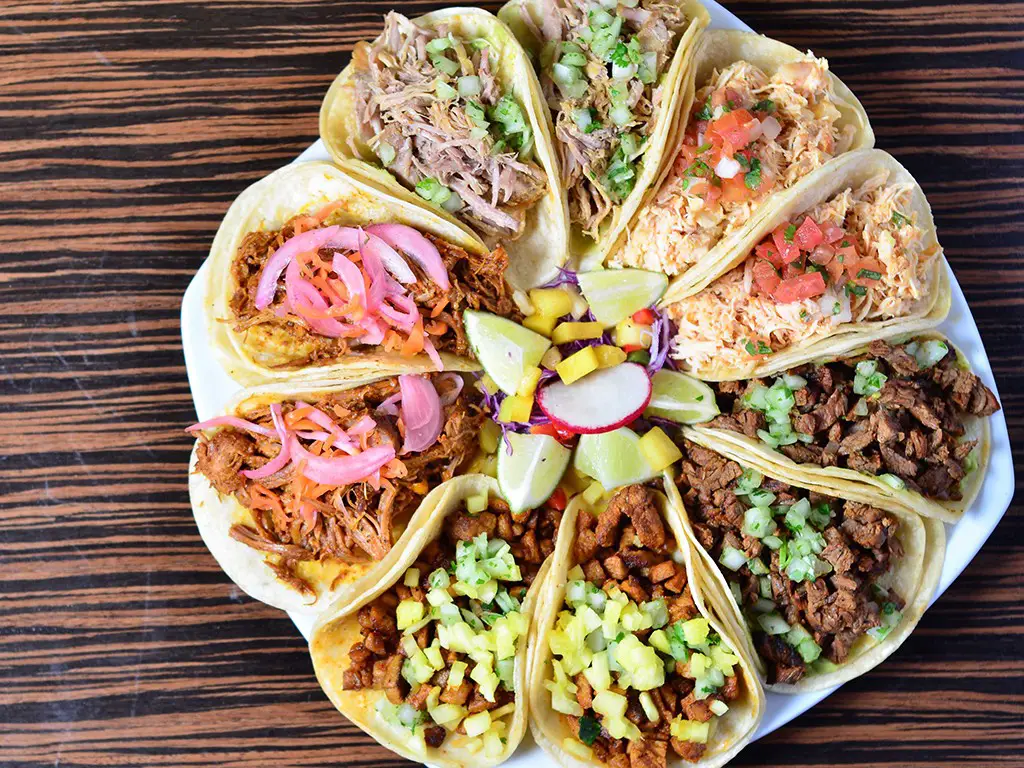Located in Mexico, the Aztecs built a cultured civilization with unique kinds of food eaten daily for breakfast, lunch, and dinner. In this easy lesson, we explain what kinds of food the Aztecs ate every day, including specialty cuisines according to different social classes.

Priests are high on the social class of Aztec civilization. Winged ants and giant lizards are delicacies only afforded by the ‘wealthy’ well-respected Aztec priests and other Aztec’ upper class.
The typical diet of the Aztecs included the first meal at ten o’clock, where middle class and lower class Aztecs usually ate maize porridge called atole. Atole was sweetened often with honey or peppers. The second meal of the day consisted of tortillas, beans, and sometimes tamales. The Aztecs rarely had third meals, but if they did, Aztecs usually would drink a corn drink spiced with sage. It was notable that only the nobles and wealthy upper class of the Aztec civilization had real dinner at a banquet or a party.
Other foods the Aztecs ate were beans, sweet potatoes, green beans, tomatoes, cactus, and chilies. Occasionally, Aztec citizens would have fruits like apples, cherries, and guavas. Rarely did the Aztecs eat meat. Research findings showed that during times of famine, Aztecs would even eat worms and insects, good sources of protein, along with skimmed algae cakes.

The Aztecs were also known for adding variety of spices to their foods, such as sage, coriander, vanilla, and even chocolate. In between meals, Aztec families would chew gum called tzictli. During holiday seasons, Aztecs celebrated with turkeys and even ate small hairless dogs called itzcuintli, relative to today’s chihuahua. Itzcuintli dogs were sold at markets, where Aztec citizens gathered to sell and purchase them.
Central Chemoreceptor vs Peripheral Chemoreceptor
Nervous System 101 Study Guide Notes: Structure, Function, Motor Unit, Somatosensation, and Muscle Stretch Reflex
Nervous System 101 Study Guide Notes: Autonomic Nervous System, Sympathetic vs Parasympathetic Nervous System, Gray and White Matter, Upper Motor Neurons, and Somatosensory Tract
Nervous System 101 Study Guide Notes: Anatomy, Cerebrum vs Cerebellum, Brain Stem, Subcortical Cortex, Cerebral Cortex
Nervous System 101 Study Guide Notes: Neurotransmitter Anatomy, Glutamate vs Acetylcholine vs Histamine vs Norepinephrine vs Dopamine vs Serotonin, Selective Serotonin Reuptake Inhibitors
Nervous System 101 Study Guide Notes: Early Methods vs Modern Ways of Studying the Brain, Brain Neuroimaging – CT vs MRI vs EEG vs fMRI vs PET Scans
Nervous System 101 Study Guide Notes: Types of Neural Cells, Structure and Function, Astrocytes vs Microglia vs Ependymal Cells vs Oligodendrocytes vs Schwann Cells
Nervous System 101 Study Guide Notes: Neuron Resting Potential vs Graded Potential vs Action Potential, Capacitance, & Demyelination Diseases: Guillain-Barre Syndrome vs Multiple Sclerosis
Check out these popular articles 🙂
Circulatory System: Blood Flow Pathway Through the Heart
Ectoderm vs Endoderm vs Mesoderm
Psychology 101 and the Brain: Stress – Definition, Symptoms, and Health Effects of the Fight-or-Flight Response
Circulatory System: Heart Structures and Functions
Ductus Arteriosus Vs Ductus Venosus Vs Foramen Ovale: Fetal Heart Circulation
Cardiac Arrhythmias: Definition, Types, Symptoms, and Prevention
Upper Vs Lower Respiratory System: Upper vs Lower Respiratory Tract Infections
Seven General Functions of the Respiratory System
Digestive System Anatomy: Diagram, Organs, Structures, and Functions
Kidney Embryology & Development: Easy Lesson
Autocrine vs Paracrine vs Endocrine: What are the Differences?
Their Eyes Were Watching God: Mule Symbol
Shoulder Abduction Muscles: Medical Anatomy and USMLE
Cell Membrane Dynamics: Flippase vs Floppase vs Scramblase
Cell Membrane Fluidity: Factors That Influence and Increase the Cell Membrane Fluidity
Psychology 101: Crowd Psychology and The Theory of Gustave Le Bon
Introduction to Evolution: Charles Darwin and Alfred Russel Wallace
Symbolism of Shoes in Dreams

Support Us at Moosmosis.org!
Thank you for visiting, and we hope you find our free content helpful! Our site is run 100% by volunteers from around the world. Please help support us by buying us a warm cup of coffee! Many thanks to the kind and generous supporters and donors for doing so! 🙂
Copyright © 2022 Moosmosis Organization: All Rights Reserved
All rights reserved. This essay first published on moosmosis.org or any portion thereof may not be reproduced or used in any manner whatsoever
without the express written permission of the publisher at moosmosis.org.

Please Like and Subscribe to our Email List at moosmosis.org, Facebook, Twitter, Youtube to support our open-access youth education initiatives! 🙂


